Public Speaker Series
2025-26 2024-25 2023-24
2022-23 2021-22 2020-21
2019-20
2021-22
Economic Freedom and the Wealth and Health of Nations
Why It's OK to Want to Be Rich
How Innovation Works: And Why It Flourishes in Freedom
Money and the Rule of Law
The Rise of Political Capitalism
Why Thomas Sowell Matters: Race, Inequality, and the Role of Public Intellectuals
Economic Freedom and the Wealth and Health of Nations
September 1, 2021
Robert Lawson, Southern Methodist University
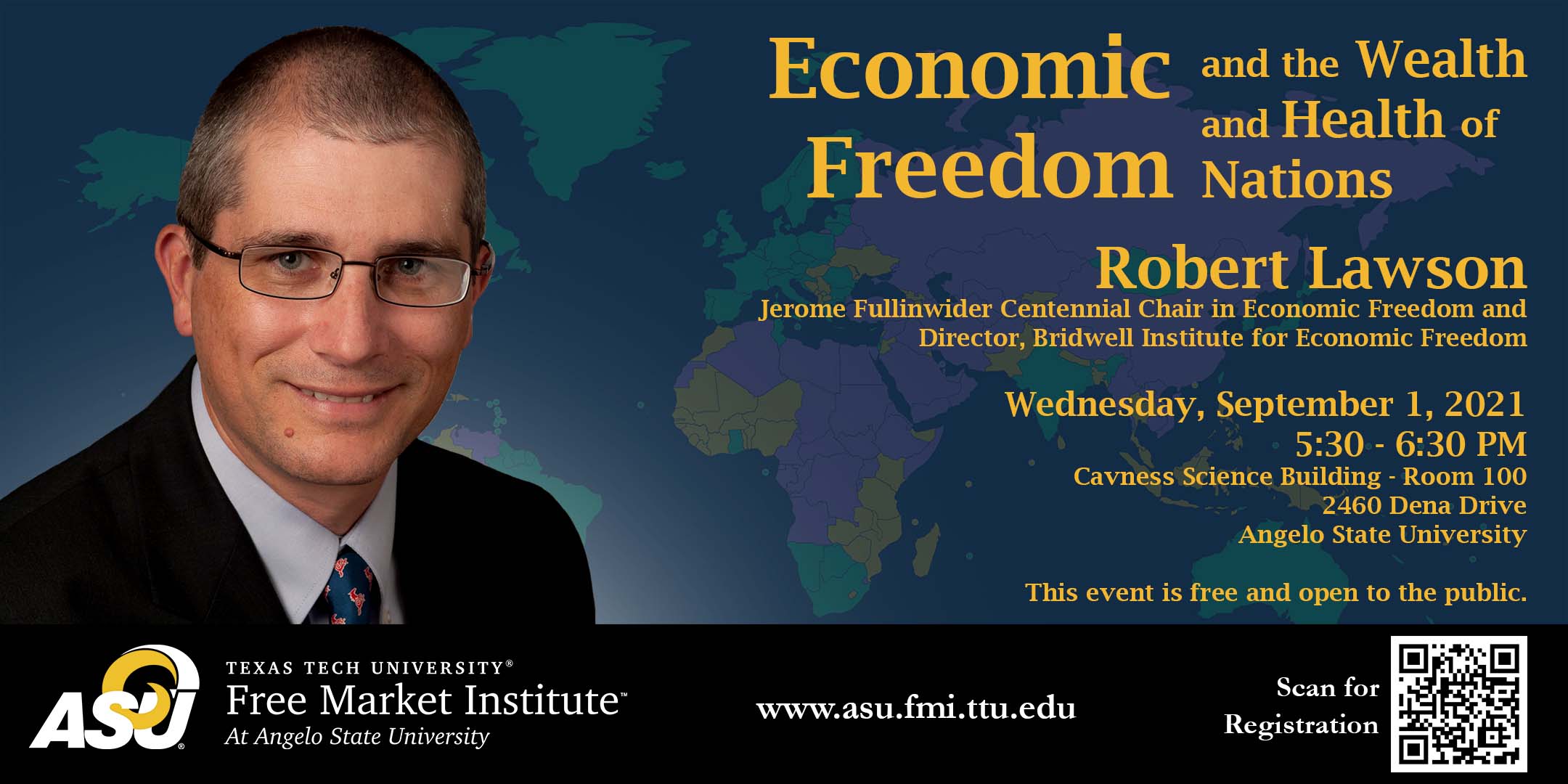
About the Program
The authors of the Fraser Institute's Economic Freedom of the World (EFW) index have been collecting data and rating countries' level of economic freedom since 1996. The index measures the consistency of a nation's policies and institutions with the ideals of economic freedom including secure private property, freedom to trade and enter markets, limited taxation and regulation, and monetary stability. Robert Lawson described how scholars can use the EFW index to study questions about the causes and consequences of economic freedom, and how economic freedom correlates with improvements in global health, wealth, and well-being.
Why It's OK to Want to Be Rich
September 29, 2021
Jason Brennan, Georgetown University
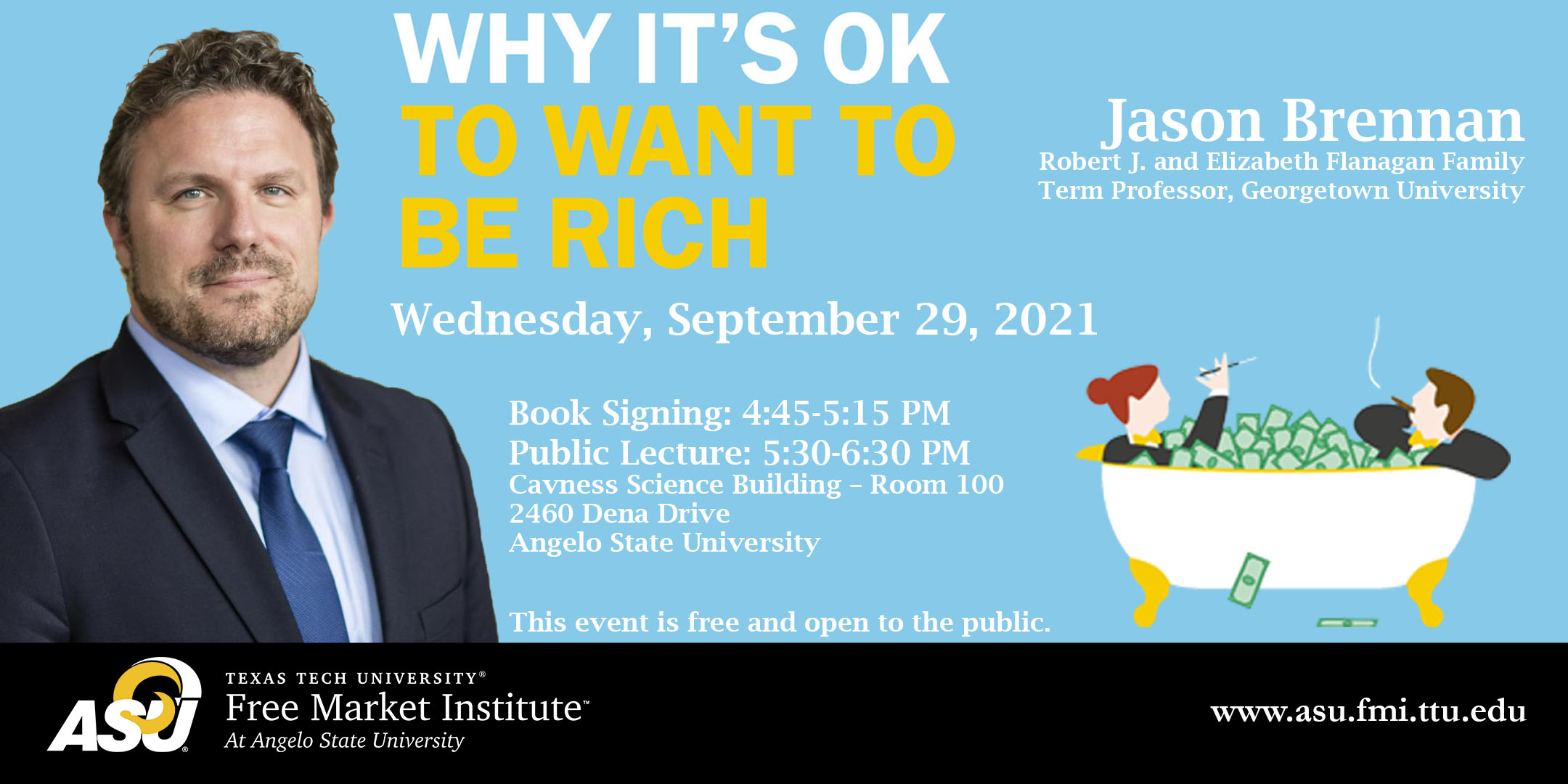
About the Program
Finger-wagging moralizers say the love of money is the root of all evil. They assume that making a lot of money requires exploiting others, and that the best way to wash off the resulting stain is to give a lot of it away. Jason Brennan presented his case for why that the moralizers have it backwards. He argued that, in general, the more money you make, the more you already do for others, and that even an average wage earner is productively “giving back” to society just by doing her job.
How Innovation Works: And Why It Flourishes in Freedom
November 3, 2021
Matt Ridley, Member, Science and Technology Select Committee, UK House of Lords
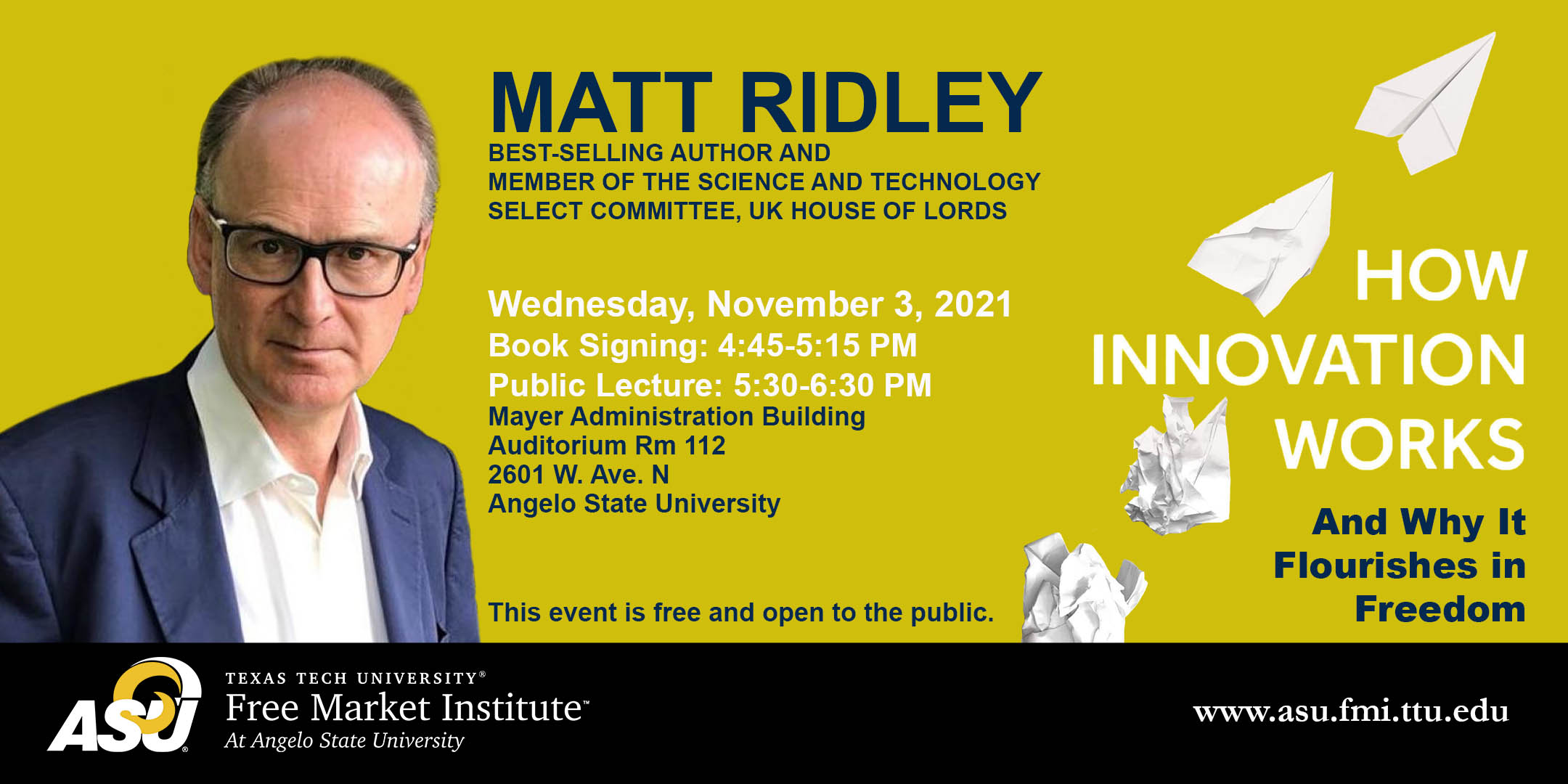
About the Program
Innovation is the main event of the modern age, the reason we experience both dramatic improvements in our living standards and unsettling changes in our society. Innovation will shape the twenty-first century. Yet innovation remains a mysterious process, poorly understood by policy makers and businessmen alike. Matt Ridley argued that we need to see innovation as an incremental, bottom-up, fortuitous process that happens as a direct result of the human habit of exchange, rather than an orderly, top-down process developing according to a plan.
Money and the Rule of Law
February 8, 2022
Alexander Salter, Texas Tech University
Peter Boettke, George Mason University
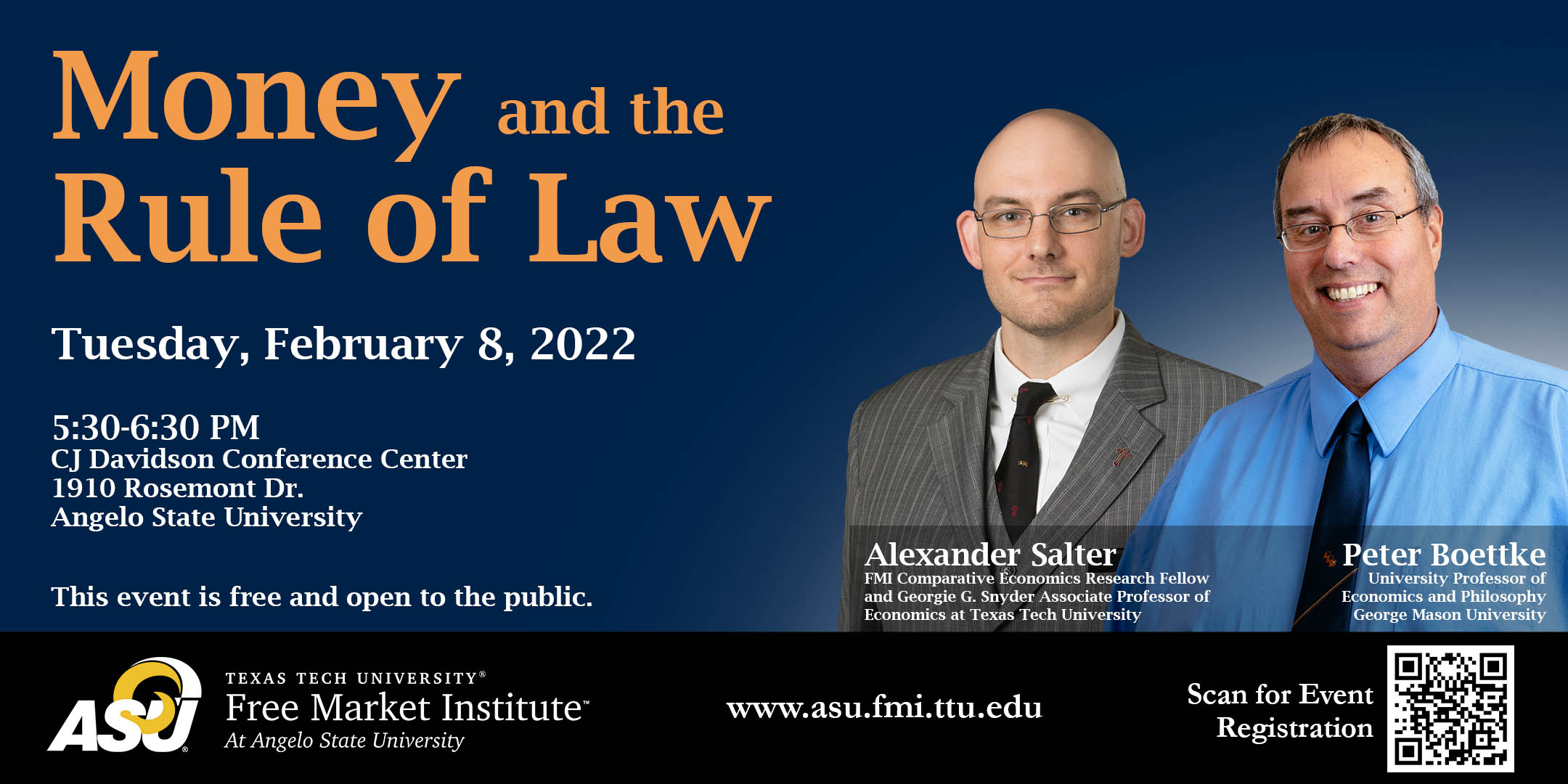
About the Program
General, predictable rules provide a sturdier foundation for economic growth and prosperity. A rule of law approach to monetary policy would remedy the flaws that resulted in misguided monetary responses to the 2007-2008 financial crisis and the COVID-19 pandemic. Understanding the case for true monetary rules is the first step toward creating more stable monetary institutions. Peter Boettke and Alexander Salter presented a novel argument in favor of embedding monetary institutions into a rule of law framework.
The Rise of Political Capitalism
March 2, 2022
Randall Holcombe, Florida State University
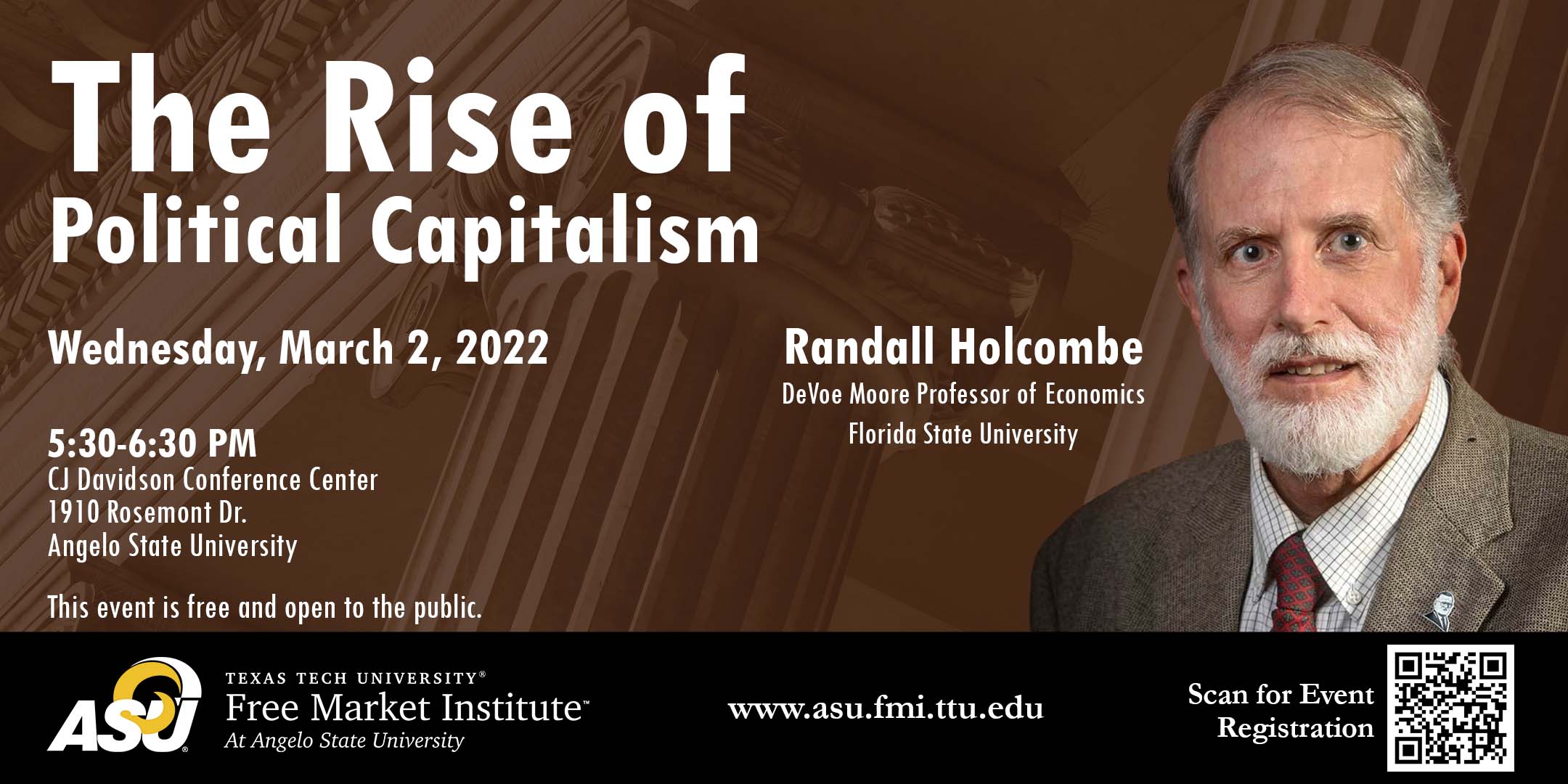
About the Program
Problems associated with cronyism, corporatism, and policies that favor the elite over the masses have received increasing attention in recent years. Political capitalism explains that what people often view as the result of corruption and unethical behavior are symptoms of a distinct system of political economy. Randall Holcombe combined well-established theories in economics and the social sciences to show that political capitalism is not a mixed economy, or government intervention in a market economy, or some intermediate step between capitalism and socialism. Political capitalism is a distinct economic system.
Why Thomas Sowell Matters: Race, Inequality, and the Role of Public Intellectuals
April 26, 2022
Jason Riley, The Wall Street Journal
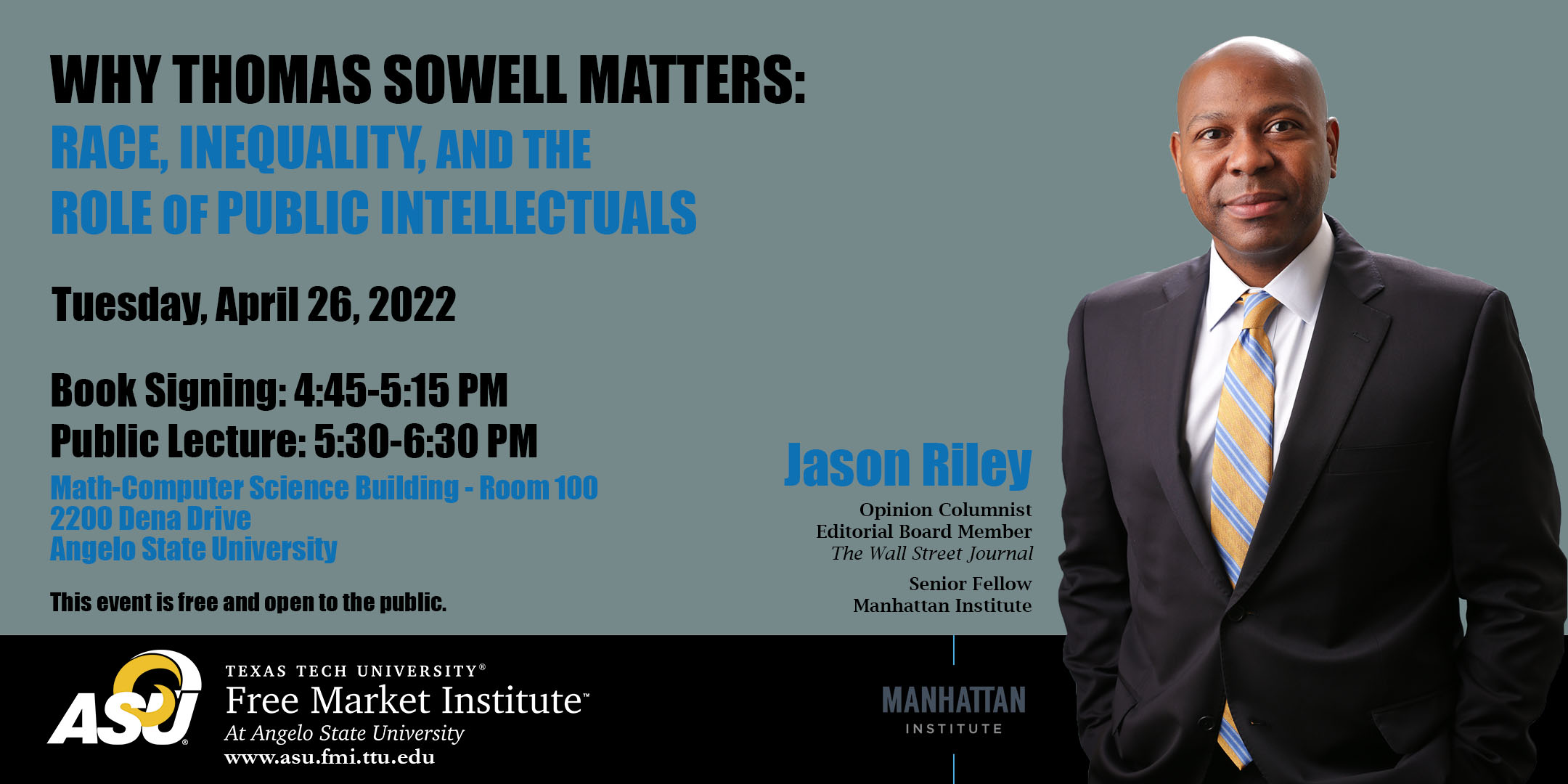
About the Program
Based on his book, Maverick: A Biography of Thomas Sowell, Jason Riley explained how Sowell's scholarship over the decades relates to our ongoing debates about economic inequality, race, policing, education, social justice, the role of public intellectuals, and so much more.

Free Market Institute
-
Address
Texas Tech University - Box 45059 - Lubbock, TX - 79409-5059 -
Phone
806.742.7138 -
Email
free.market@ttu.edu
